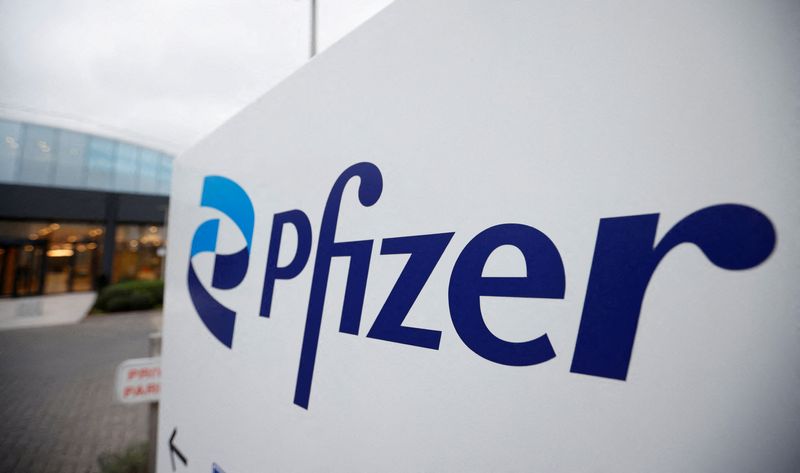Pfizer's bladder cancer therapy meets main goal in late-stage study
(Reuters) - Pfizer (NYSE:PFE )'s experimental treatment for a type of bladder cancer significantly improved the time that patients remained free of certain complications, including cancer recurrence, the drugmaker said on Friday following data from a late-stage study.
The antibody treatment, sasanlimab, in combination with Bacillus Calmette-Guérin (BCG) vaccine met the main goal of the study in patients with high-risk non-muscle invasive bladder cancer (NMIBC) who have not received the vaccine for the cancer.
NMIBC accounts for about half of all newly diagnosed bladder cancer cases, according to the American Cancer Society (ACS).
Pfizer said it plans to present the data at an upcoming medical meeting and discuss it with global health regulators for a potential approval.
The drug is an anti-PD-1 monoclonal antibody, the same class of treatment as Merck (NS:PROR )'s Keytruda, which helps the body's immune system detect and attack tumors.
The safety profile of sasanlimab was consistent with that of other PD-1 inhibitors, Pfizer said.
In the study, patients were randomly chosen to receive a 300 milligram dose of sasanlimab as an under-the-skin injection in combination with the BCG vaccine, or just the BCG vaccine alone.
The BCG vaccine, mainly used to prevent tuberculosis, is also a standard treatment for some forms of bladder cancer.
Last year, the U.S. Food and Drug Administration approved ImmunityBio's immunotherapy Anktiva to treat patients with NMIBC, which is unresponsive to the BCG vaccine.
ACS estimates bladder cancer, which typically occurs in older people, accounts for about 4% of the cancer cases in the United States.
Source: Investing.com
